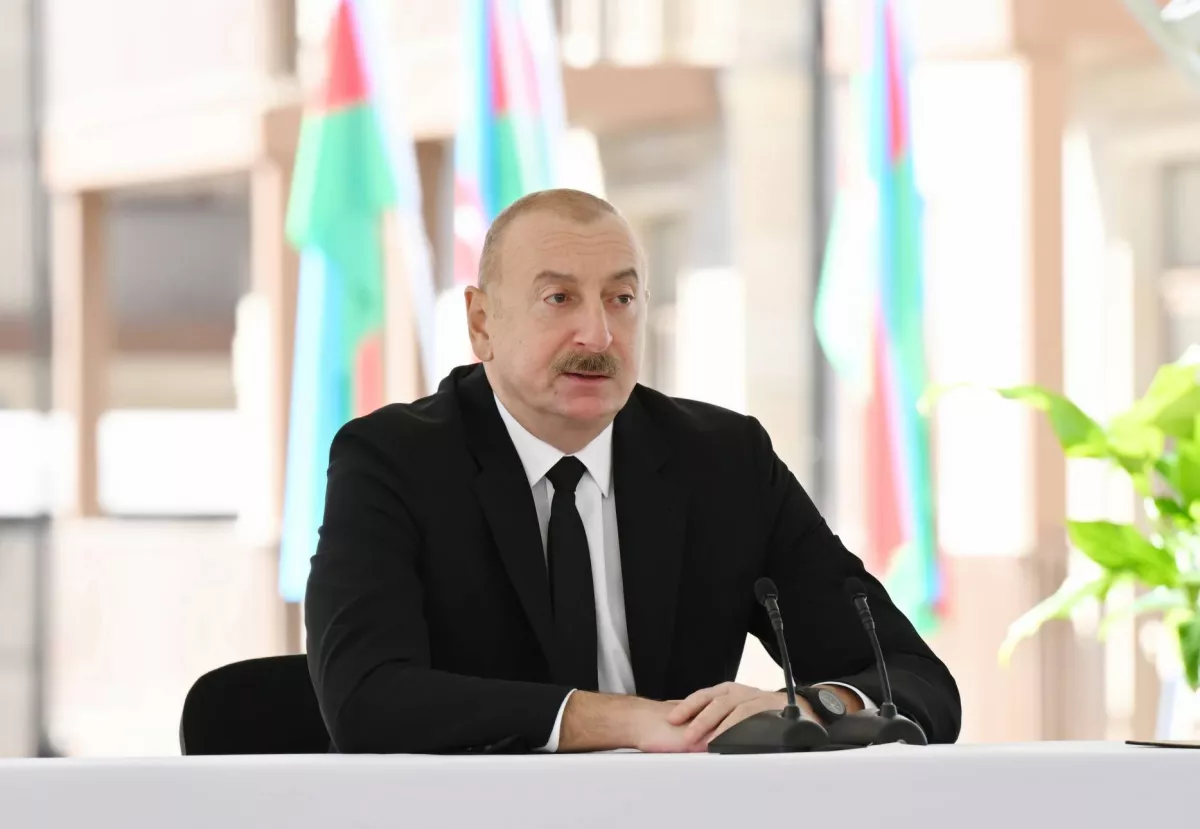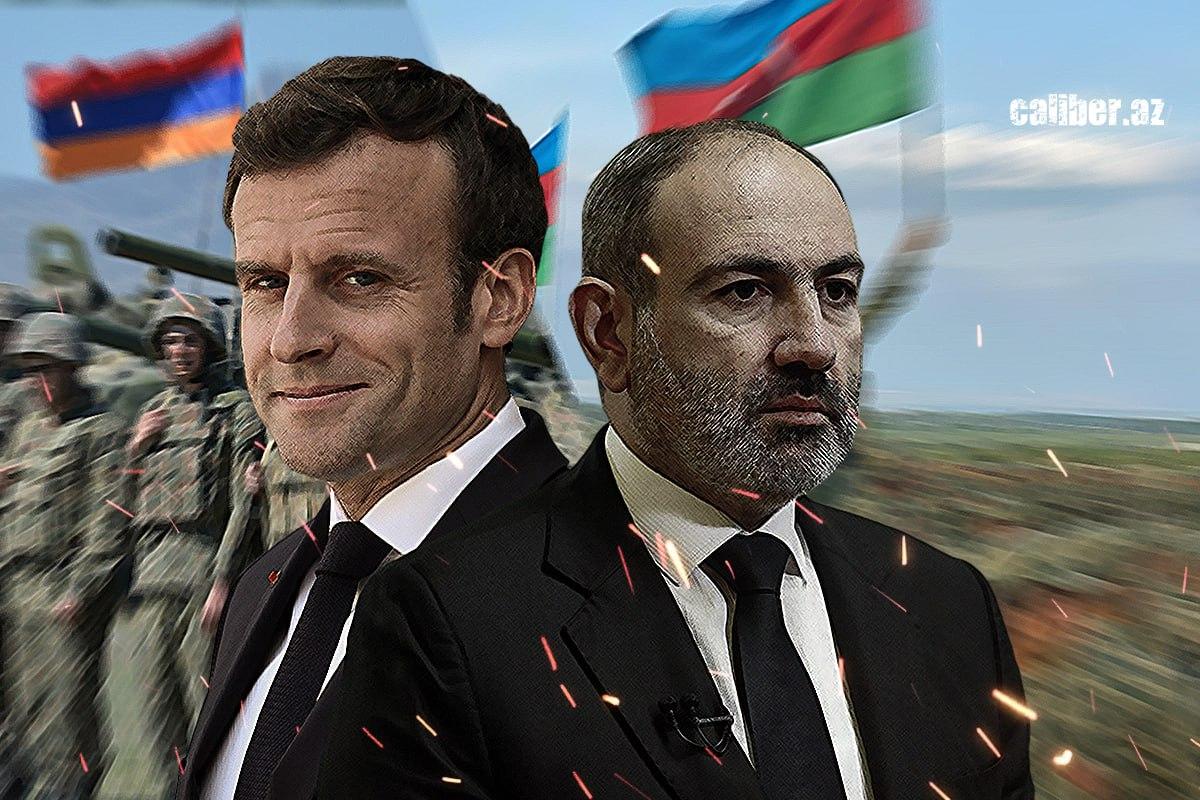The “burning window” into Central Asia via Georgia External threats loom over the South Caucasus
The US interest in Georgia and Azerbaijan becomes much clearer when viewed from a geopolitical perspective. The vast region of Central Asia and the Caspian Sea basin has been largely cut off from direct American influence. To the north, US access is effectively "blocked" by Russia, with whom the US has been in sharp conflict since the onset of the war in Ukraine. To the east, China stands as a barrier, unwilling to allow US military personnel or equipment to pass through its territory. To the south, access is blocked by Iran and Afghanistan—both at odds with the US, and from which American forces were recently expelled. This leaves just one viable "window" of access: through Georgia and Azerbaijan. Currently, this "window" is part of the peaceful and rapidly expanding Middle Corridor, but it seems that certain powers are not too keen on maintaining peace along Eurasia's key overland trade route.
The situation was quite different just three years ago. First, the Middle Corridor was far less in demand than it is today, as there was neither a large-scale war between Russia and Ukraine nor major shipping disruptions in the Red Sea. Second, the US still had a military presence in Afghanistan. Back then, to secure logistical links to its forces in Afghanistan, the US made certain concessions to the countries along the supply routes. Azerbaijani President Ilham Aliyev highlighted this point on October 4, 2024, during a meeting with residents of Jabrayil, which was liberated four years ago from Armenian occupation.
President Aliyev recalled that Azerbaijan, while under Armenian aggression, also faced US sanctions in 1992. That year, the US Congress passed Section 907 of the Freedom Support Act, which banned US assistance to Azerbaijan due to the Karabakh conflict. Effectively, while Azerbaijan was losing its territories, the US sided with the Armenian occupiers. However, in 2001, the US lifted sanctions against Azerbaijan. As President Aliyev noted, this was because Azerbaijan had become strategically important to the US "because their aggressive activities in Afghanistan had begun." The Azerbaijani government then allowed the George W. Bush administration to use its territory for troop deployments to Afghanistan, marking the beginning of military cooperation between the two countries. Since 2002, the White House has annually issued permission to provide assistance to Azerbaijan, but as of August 2023, no such decision had been made.
"As long as they remained in Afghanistan, these sanctions were waived annually by the US President. When they fled Afghanistan, right in front of the eyes of the entire world, these sanctions were reimposed against us. Is there a degree of ingratitude in this, or not?!" Aliyev posed this rhetorical question.

Today, the unfriendly actions from the US towards Azerbaijan continue. Recently, 60 pro-Armenian US congressmen called on the US government to impose new sanctions against Azerbaijan. President Aliyev also highlighted this move during his meeting with the residents of Jabrayil.
"When I looked at that appeal, I guessed that both its author and addressee were the same. Because its addressee is the US Secretary of State. But I have no doubt that this appeal was also written in the US Department of State. In other words, they are writing letters to themselves to threaten us, to accuse us," the Azerbaijani president stated, drawing attention to the US State Department's double standards.
" Armenia violated all norms and principles of international law, occupied about 20 per cent of our lands, carried out ethnic cleansing, committed the Khojaly genocide, and left all our cities and villages in ruins. Has any official representative of any Western country ever reprimanded them? No…When we raised our rightful voices on all international platforms, we were told that our words were too sharp. This sharp rhetoric does not bring peace closer; it distances it…There is no military solution to this conflict. In other words, Western states used all kinds of dirty tactics to reconcile us with defeat so that we would not liberate our lands from occupation. France and similar Western states did everything they could to perpetuate this occupation," Aliyev said.
By exerting pressure on Azerbaijan and taking a pro-Armenian stance, certain circles in the U.S. are hindering the peace process between Azerbaijan and Armenia. They want to keep the South Caucasus in a state of tension, on the brink of war, which becomes increasingly likely as France continues to arm Armenia. The situation is further exacerbated by U.S. pressure on the Georgian government.
The fact that anti-Azerbaijani actions by the US are happening in parallel with its blatant interference in Georgia's internal affairs is obvious. Similarly, France's involvement in destabilizing Georgia internally is equally clear. Both the US and France openly support the Georgian opposition, which is not even hiding its preparations for a violent takeover of power if it fails to oust the ruling Georgian Dream party in the parliamentary elections scheduled for October 26, 2024.

The pro-Western Georgian opposition is being coordinated by Salome Zourabichvili, a "former" French citizen and "former" employee of the French Foreign Ministry, who now serves as the President of Georgia. As part of her European tour, Salome Zourabichvili met with Emmanuel Macron in Paris on October 3, 2024. While the details of their meeting were not made public, Macron later posted on Facebook: "France welcomes the European and democratic aspirations of the Georgian people. We hope that the October 26 elections will enable Georgia to resume its European path," clearly signalling his full support for the Georgian opposition. Upon receiving instructions from her "former" superiors, Salome Zourabichvili returned to Georgia and significantly ramped up her activities.
Zourabichvili has proposed forming a so-called "technical" or "shadow" government made up of opposition representatives following the elections. She suggests that opposition parties distribute ministerial portfolios among themselves in this "technical government," which she claims will last for a year before new parliamentary elections take place. This raises the question: why establish a "technical government" today and speculate about new elections? After all, if we listen to the opposition, they are confident in a "crushing victory" in the October 26, 2024 elections, which would allow them to form a legitimate government.
This suggests that both the opposition and Salome Zourabichvili, along with her French and American "curators," understand that Georgian voters are unlikely to support the opposition, making their "honest victory" improbable. Therefore, even before the elections, they are starting to create "parallel" power structures to accuse the Georgian Dream party of "election fraud" and establish dual power in the country. This could directly lead not only to civil war in Georgia but also to external interference and a "Great War" in the South Caucasus. The US and France, by supporting the revanchism of Yerevan, are making such a war increasingly likely.

Let’s consider a hypothetical situation: Armenia, through new provocations, escalates tensions to a military confrontation with Azerbaijan and begins appealing to the West for assistance, crying out about a "genocide threat." The government of the Georgian Dream party, which maintains friendly relations with Azerbaijan, may refuse to allow the shipment of weapons from France through Georgian territory. In contrast, a "technical government" formed by the pro-Western opposition, coordinated by the "Frenchwoman" Zourabichvili, could grant approval for such shipments, acting against Georgia's interests and effectively provoking external military intervention in the region.
As a result, the "window" into Central Asia through Georgia and Azerbaijan could be engulfed in the flames of war, drawing in Russia as well. Other scenarios of regional destabilization are also possible, each of which poses a grave threat to the very existence of the Georgian state.
It’s worth noting that the US and Western coalition's intervention in Afghanistan in 2001 followed the chaos of a civil war in that country. However, Afghanistan, unlike Georgia, has a "strategic disadvantage"—it occupies a key position in Eurasia but lacks access to the sea. Throughout the duration of the American presence, establishing reliable trade transit routes proved elusive, except for the transit of drugs and militants. Consequently, this "inconvenient" foothold was abandoned by the US with little regret, and other geopolitical players are currently not inclined to make significant efforts to bring the country under their full control. As a result, Afghanistan has been "left alone" for now.
Georgia, on the other hand, holds a unique strategic position. Thus, the struggle for Georgia could become fierce, especially considering that Armenia has already positioned itself as a potential staging ground for the US and France, effectively serving as "expendable material" and a "detonator" for a larger war in the region.
Vladimir Tskhvediani, Georgia, for Caliber.Az








